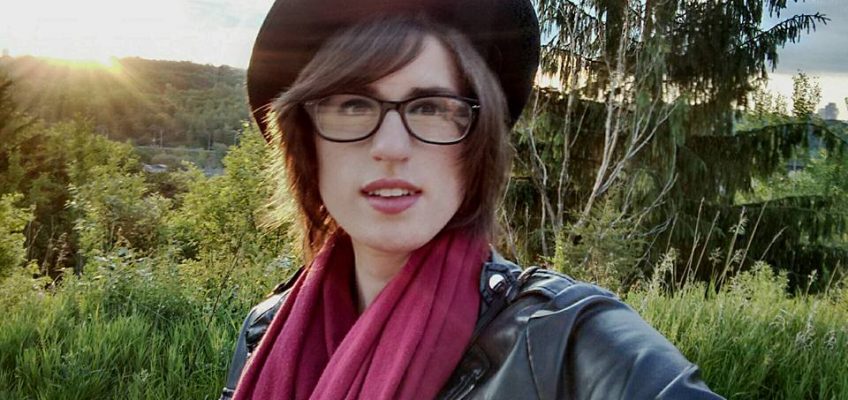What a year it has been for Mixed Company Theatre! In 2015 we worked on several amazing projects including: developing our Inter-Gen Program, creating a new high school tour called Half Full, touring Mixed Messages to high schools and universities across the GTA, building Out of the Illusion – a play with the JustUs Group of seniors from the Six Nations Reserve, delivering workshops to several community organizations including the MicroSkills Youth Centre, and the last show of 2015 – A Day on the Shore – developed in collaboration with Lakeshore residents.
This will be the third year developing our Inter-Gen Program. We have led interactive workshops with participants from our partnering organizations including UrbanArts, Heritage York Members at Historical Lambton House, and Scadding Court Community Centre. These workshops brought together people across generations to create theatrical presentations to bridge the gap between generational and cultural realities, issues, and concerns. In the upcoming year, the project will culminate with the stories of two communities – Weston/Mount Dennis and Alexandra Park/Chinatown – and MCT will build two productions showcased within a Toronto theatre venue. Stay tuned for more details!
In February we workshopped Half Full, our newest high school show to break the stigma on mental health. The process was led by the Mixed Company Theatre playwright Catherine Frid, who developed the script with the input of those who live with anxiety, including students, teachers, and mental health and educational institutions. We also toured our well received production Mixed Messages to High Schools this past May and in Universities in August. We received tremendous positive feedback from the student and teacher audience members in the various schools, and we will continue to reach schools across the GTA this coming year.
With Microskills Youth Centre – the Dixie Road location – we ran workshops with youth to raise awareness of gender and equity issues and the effects of cyber bullying. The workshops were delivered as an after school program to a group of local youth. Other workshops offered this past year were our Summer Professional Development workshop series which included our Introduction to Forum Theatre, Masks of Manipulation, Rainbow of Desire, and Facilitator/Joker Training.
This fall Mixed Company Theatre, in partnership with Scadding Court Community Centre and The G. Raymond Chang School of Continuing Education at Ryerson University, worked with the JustUs: an amazingly talented First Nation’s Senior group from the Six Nations Reserve. Through interactive theatre and community arts activities, participants explored intergenerational stories, issues and concerns. This forum theatre presentation, Out of the Illusion, tackled the subject of breaking the cycle of violence through the perspective of the senior participants and the voices of their community. Out of the Illusion was well received by audiences at Ohsweken’s Great Theatre and Toronto’s Ryerson University. All were able to unpack current social issues and engage in essential dialogue using forum theatre techniques with local community participants. We hope to continue to develop and share this important production with a wider audience in 2016.
Our final show this year, A Day on the Shore, was supported by the Toronto Arts Council’s Artists in the Library program, and the Toronto Pearson Airport’s Propeller Program. Mixed Company Theatre was this year’s artist in residence at the Mimico Centennial Library. This show was a beautiful mosaic of community building, art making and designing, music and soundscape development, storytelling and live theatre performances. Many of the performers were local residents of the Lakeshore neighbourhood. The script was developed in consultation with local residents, and showcased their shared stories and lived experiences of the neighbourhood. These community members were also involved in every aspect of development of the production, including puppet making, instrument building, soundscape production, costume and prop making, and performing in the show. We were able to capture their joy, the new participants connections made, as well as be witness to the artistic transformation that occurred by being part of A Day on the Shore. It was truly a lovely way to wrap up the year!
We would like to thank our company funders who helped us to realize all of the great work we accomplished this year. Thank you to: the RBC Children’s Mental Health Project, Scotiabank’s J.P Bickell Foundation, the Ontario Trillium Foundation, the Toronto Arts Council, the Ontario Arts Council, the Toronto Pearson Airport’s Propeller Project, the Catherine and Maxwell Meighen Foundation, the Ontario Government Seniors Community Grant Program, and the Ontario Arts Endowment Fund.
A big thank you also to our community partners who have been amazing hosts and collaborators. Thank you to: Scadding Court Community Centre, Heritage York (Located in the Historical Lambton House), UrbanArts, the Toronto District School Board, the Toronto Catholic District School Board, the Toronto Public Library, Ryerson University’s G. Raymond Chang School of Continuing Education, Lakeshore Arts, and the South Etobicoke Youth Assembly.





